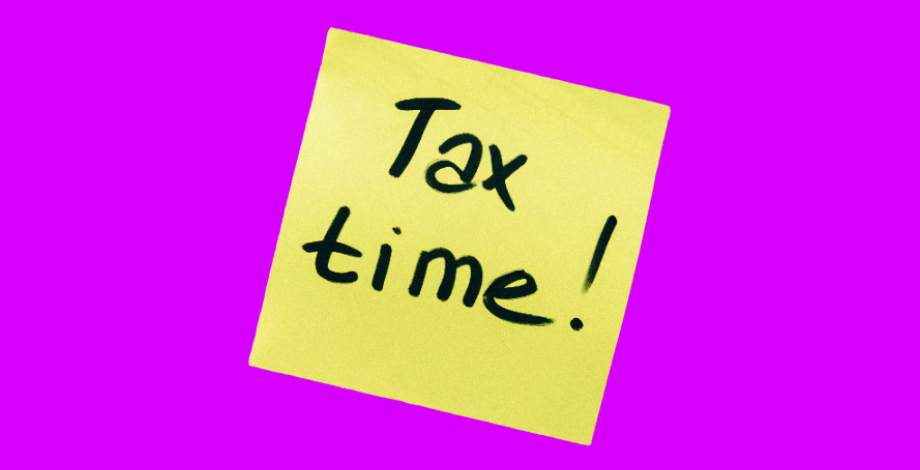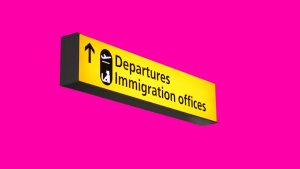If you earn money while living in the Netherlands, we have important tax advice for you! The Dutch tax office (Belastingdienst) collects taxes and social security contributions that finance government expenses. How much and what type of tax you need to pay will depend on your income, assets, residency status and more.
If you are an expat relocating to the Netherlands, understanding the Dutch tax system is essential for a smooth transition. Here, we have compiled everything you need to know to understand the tax system in the Netherlands.
Types of taxable incomes
In the Netherlands, the taxable incomes are divided into three boxes. Each type of income is taxable at different rates. Understanding the boxes are important to understand your tax obligations and taxable incomes. These three boxes are the following:
Box 1: Income from employment, profits and homeownership
Box 2: Income from substantial interest
Box 3: Income from savings and investments
Residency Status
Your tax obligations in the Netherlands will depend on your residency status. There are three groups of the residency status of taxpayers: non-resident taxpayers, resident taxpayers and partial non-resident taxpayers.
Non-resident taxpayers
Individuals who work but do not live in the Netherlands or commuters who live in their home country are classified as non-resident taxpayers. These taxpayers can only be taxed for an income from a Dutch source. Examples of this are if they are employed by a Dutch company or if they have income from Dutch real estate. Savings in a Dutch bank account is not a Dutch income source.
Resident taxpayers
Individuals who live in the Netherlands are taxable on their worldwide income. This means that the source country of the income does not matter.
Partial non-resident taxpayers
Resident taxpayers who benefit from the 30% ruling can opt to be taxed as partial non-resident taxpayers. The individual is taxed in Box 1 as a resident Dutch taxpayer, on their worldwide employment income (except for US nationals/green card holders). Individuals will be taxed in Box 2 and 3 incomes as Dutch non-resident taxpayers (will only be taxed on the Dutch sourced income).
Income tax
Your taxable income in the Netherlands will depend on the level of your income and residency status, as mentioned above. The income tax rates in the Netherlands are overall 36,93% for income up to € 73.031 and 49,50% for any excess. It is important to pay attention to any applicable deductions or allowances. Examples of these deductions include mortgage interest, healthcare costs, and certain expat-specific expenses.
Wage tax
If you are in paid employment in the Netherlands, you are subject to the wage tax. Wage tax is due by a withholding agent (Dutch employer) monthly. Wage tax can be credited against personal income tax due by the employee.
Tip Under circumstances it is possible to apply for “wage tax = income tax” so that the employees no longer need to file Dutch personal income tax returns.
Social Security contributions (Social Premiums)
If you are living and working in the Netherlands, you need to contribute to the Dutch social security system (nationalized social insurance and employee insurance). These contributions fund various social benefits, such as healthcare, pensions, and unemployment benefits. Social security premiums are also due by a withholding agent (Dutch employer) monthly.
30% Ruling
The Netherlands offers a tax benefit called the 30% ruling for qualifying expats who have ‘specific expertise’ that is scarce in the Dutch labour market. If you are an expat who meets certain criteria, you may be eligible for a tax-free allowance of 30% of your employment income. This benefit aims to compensate for “extraterritorial costs” that incur as a result of the international move and living abroad.
Taxation of your foreign income
The Netherlands has signed tax treaties with many countries to prevent double taxation and provide relief for certain situations. These treaties may determine the allocation of taxing rights between the Netherlands and your home country.
Dividends
If you own less than 5% of the shares of a foreign company, box 3 applies and the dividends are not taxed in the Netherlands. If you own more than 5% of the shares of a foreign company, box 2 applies and your dividends are taxable. However, either the tax treaty or the applicability of the 30% ruling often limits the right to tax.
Rental payments
Properties abroad which are not your primary residence fall under box 3 and are taxable in the Netherlands. The rental payments you receive however are not taxable if the property is not part of an enterprise or business and kept as an investment.
Other Dutch taxes
Other than the income or wage tax, there are several other taxes to consider in the Netherlands. Some important examples include value-added tax (VAT) on goods and services, municipal taxes (e.g., property tax, garbage tax), inheritance or gift tax, transfer tax (when buying a property) and water authority tax. Other taxes may apply to you.
Useful Resources
It is important to understand your reporting obligations and deadlines for filing tax returns. To ensure compliant tax reporting, it is advisable to engage a tax professional who specializes in international taxation or expat services. Are you an expat in the Netherlands and need tailored tax advice? You can contact our team to arrange your first meeting and get all the tax services you may need.
For more information, you can visit the Belastingdienst and Dutch customs authority websites.
Get Support
Are you relocating to the Netherlands for work? Here at Jimble Destination Services Provider, we provide support at every step of your relocation journey. Contact us to talk to one of our specialists.










